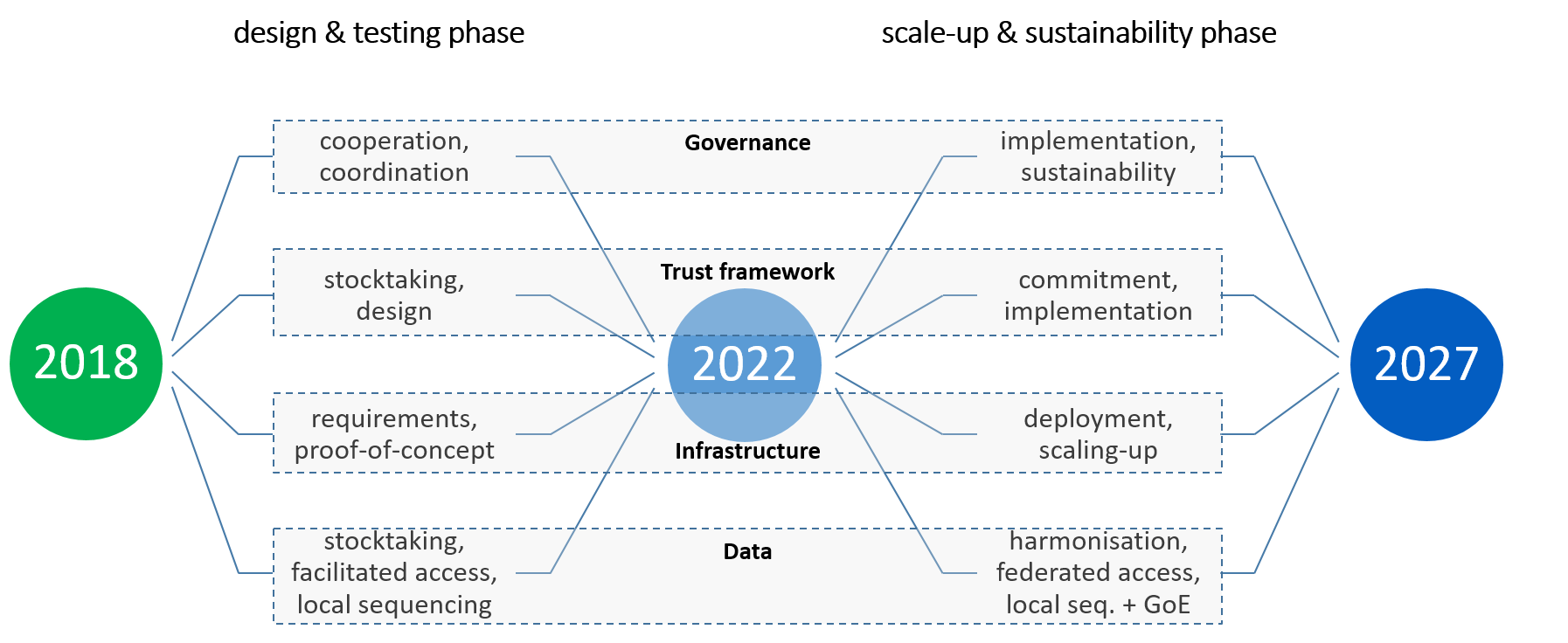To achieve true racial equality and increase the accountability of police officers, Austin authorities are working to make the police a data-driven institution. Within the government's direction to create an integrated framework based on data analysis to promote justice.
In May 2020, An African-American man named George Floyd was subjected to violence by police in Minneapolis, Minnesota, USA, An officer caused the man's death and sparked protests across the United States and the world.
Austin, Texas, was no exception to this wave. Especially since it witnessed a similar situation, A Hispanic man was killed by police officers, The government finds itself faced with inevitable questions, How will you increase the security of the city? Is this possible? If it calls for restructuring the police force, Is he ready for that?
Since then, City authorities have begun to review public safety measures and racial equality rates, In June, it issued a resolution setting out new key standards to be adhered to. namely, the total elimination of racial discrimination at traffic stations, court summonses and arrests, Ensure that there are no deaths at the hands of police officers.
The authorities soon formed a task force composed of government representatives and prominent members of the local community, This team had to redraw the city's public safety landscape. Develop service, policy, budget and structural changes proposals needed by the Austin Police Department, and provide the City Council with recommendations.
In 2018, the latter adopted a five-year plan called "Strategic Guidance 2023". Economic opportunities and possibilities included, mobility, safety, health and environment, Culture and continued learning, Strengthening the role of government as a body working for all. The plan focused on data-driven performance management and allocated a dashboard to monitor performance according to different indicators. To achieve the safety goal, The KPIs that support it must be monitored, The first is the equitable management of the judicial system.
Because guiding reform decisions requires data collection and analysis, Partnerships such as a collaboration between the Austin Office of Police Supervision, the Bureau of Innovation and the Office of Property Rights to analyze racial profiling data have been launched at the Austin Police Department. Studying the figures for the year 2019, They found that black people made up 14% of the total drivers of cars that were stopped. and 25% of the total arrests that led to the launch of searches, And 25% of the cases that ended in arrests, They make up only 8% of the population.
To support the results, The authorities turned to analyzing emergency calls, It found that police officers spend 41 percent of their time responding to calls known as the "third priority." where the lives or property of citizens are not in danger, And that 10% of emergency calls are related to psychological or mental issues.
The team also adopted an innovative approach based on involving the population in the reform process. Collect qualitative data from members of communities who have been adversely affected by law enforcement operations. The Austin Council counties held ten public hearings, In addition to 3 citywide sessions, One is in Spanish to ensure the participation of the largest segment of the population. During it, Residents shared their views on what to do in certain public safety situations. Several community-based organizations have hosted more than 20 other sessions of this kind. The sessions attracted about a thousand people from different ethnic backgrounds. Most said they did not want the police to intervene in most of the hypothetical scenarios presented.
These statements made clear to the group the main points on which it would focus. It is to determine what the security forces should do or avoid, And how to achieve the optimal balance between protecting citizens and serving them on the one hand, On the other hand, the police carry out their duties.
By April 2021, The Panel made its recommendations, He offered the city council various ways to reinvest $153 million of its budget — apart from the police — to enhance the safety of different ethnic groups. The recommendations included dealing with cases related to psychological or mental matters through a special center separate from the emergency system. Stop funding for vehicle patrols and dog-related inspection campaigns, But new Texas legislation forced Austin authorities to adjust its budget to align with a new law that imposes financial penalties on any city that cuts funding to police. The coordination of Austin's new orientation with Texas general legislation posed a challenge to city authorities.
Future The adoption of these technologies will face significant challenges, Such as concerns about police use of data, Some new information systems can cause overprotection of some at the expense of others. This threatens to build trust between the police and communities.
This comes in addition to privacy concerns, Where citizens leave a more comprehensive digital impact on their activism, Police can also collect more data with surveillance tools such as cameras and facial recognition software. This technological advance may harm the public perception of the legitimacy of policing. It may establish a bias in the data on which predictive police models are based, It's data collected by the police, That is, they reflect institutional and individual interpretations of the priorities and orientations of the elements, Which may carry social prejudices based on race, gender, and marital status.
Surveys have also found that the public rejects the idea of machines participating in decision-making within the criminal justice system. Communities need to be involved in policy-making.
However, accurate data collection would lay the foundations for a truly comprehensive reform process. Especially with the presence of KPIs. The next step is to develop data-driven government practices that allow monitoring and tracking change.
References:






